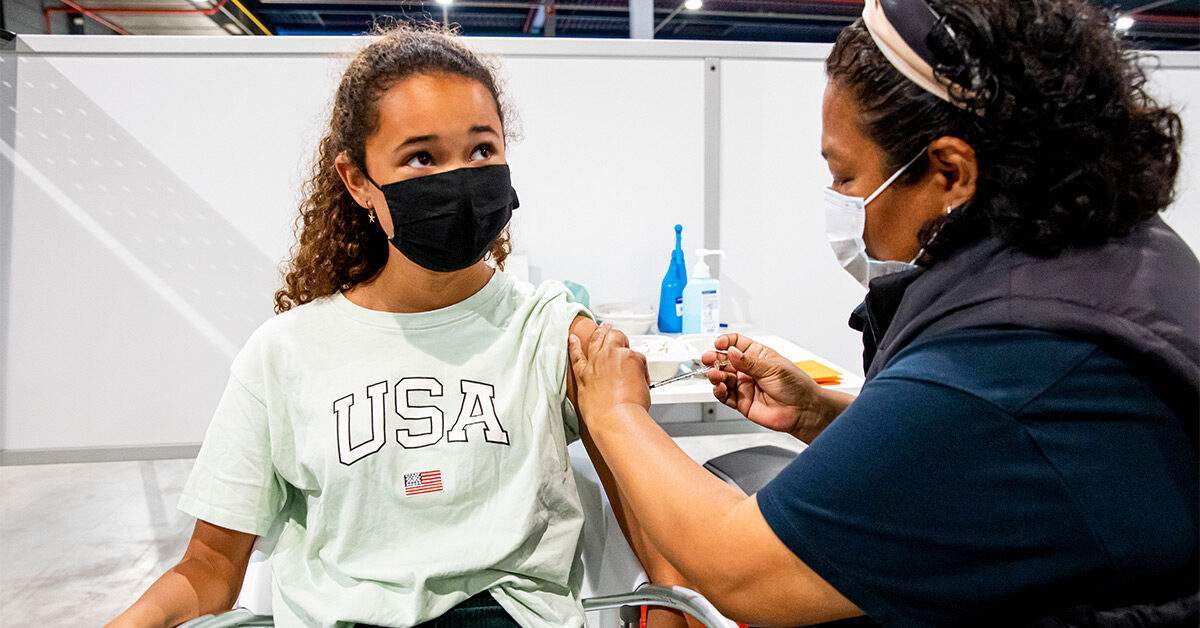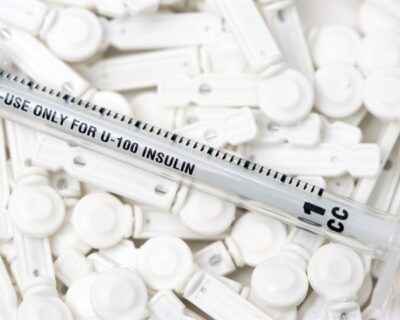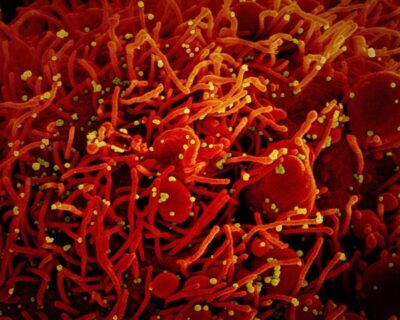
Pfizer and BioNTech have asked the FDA to approve a COVID-19 vaccine for children aged 5 to 11.
- Pfizer and BioNTech have submitted an emergency request for licensing of their COVID-19 vaccinations for children aged 5 to 11.
- The Pfizer-BioNTech vaccine is fully approved for persons aged 16 and up,
- and it is also available for teenagers aged 12 to 15 years old in an emergency.
- In September, Pfizer and BioNTech announced that no major side effects
- were discovered during the immunization trial for children aged 5 to 11.
Pfizer and BioNTech applied to the Food and Drug Administration (FDA) on Oct. 7 to have their COVID-19 vaccines approved for emergency use in children aged 5 to 11.
The FDA’s vaccine advisory council will meet on Oct. 26 to evaluate the data given by firms supporting using immunizations in this age range, according to the report.
“With the number of new cases of COVID-19 in children in the United States continuing to rise,
our submission is a vital step in our ongoing campaign against COVID-19,” Pfizer wrote on Twitter on Oct. 7.
The Pfizer-BioNTech vaccine is completely licensed for persons aged 16
and up and is also available for adolescents aged 12 to 16 under an emergency use authorization (EUA).
The firms announced data from a phase 2 and 3 trial in September,
indicating that the vaccine was safe and produced a “robust” immune response in children aged 5 to 11.
A total of 2,268 children from the United States and other countries participated in this study. They were given two doses of the vaccine, separated by roughly 21 days.
The dose used in the study,
10 micrograms is a third of the dose given to those aged 12 and up.
The level of neutralizing antibodies in the blood of youngsters was used to assess their immunological response.
“These findings — the first from a pivotal trial of any COVID-19 vaccine in this age group —
were comparable to those of a prior Pfizer-BioNTech research in adults 16 to
25 years old who were inoculated with 30 microgram doses,” the firms said in a statement.
They intend to publish the results of the entire phase 3 experiment in a reputable peer-reviewed journal.
By Halloween, a vaccine for children could be available.
FDA scientists will carefully evaluate the whole data from the phase 2 and 3 trials now that they have been received.
In September, Pfizer and BioNTech announced that no serious side effects were discovered during the vaccine trial for this age range.
The FDA and its advisory council, on the other hand, will search for any issues that businesses may not have noticed.
One of these is cardiac inflammation (myocarditis and pericarditis) after vaccination with an mRNA COVID-19 vaccine, which has been found in some young adults and teens.
After the second treatment, the majority of instances have occurred in young guys.
Dr. Christina Johns,
Dr. Christina Johns, a pediatrician and senior medical adviser at PM Pediatrics, stressed the need to put the risk of heart inflammation in context.
“So far, the risk of myocarditis from COVID-19 infection appears to be higher in the older [adolescent] age group than it appears to be with the vaccine,” she said.
Furthermore, the majority of incidents of heart irritation following immunization have been modest, and people have recovered rapidly with therapy.
“Those [older] children have done well,” she said, “so I would expect a similar course if we have this adverse effect in the lower age range.”
To reduce the danger of myocarditis, certain nations, such as the United Kingdom,
have advised a single dose of the mRNA vaccination for specific adolescent groups.
During its consideration of Pfizer and BioNTech’s EUA application,
the FDA and the Centers for Disease Control and Prevention (CDC) may evaluate this strategy for younger children.
The CDC’s vaccine committee
The CDC’s vaccine committee will convene to decide whether to recommend the vaccine if the FDA releases a EUA for this age group.
If the reviews go well, the agencies may decide between Halloween and Thanksgiving,
though this timeframe may vary.
Pfizer’s vaccine experiment in children aged 6 months to 4 years is not likely to
produce results until later this year at the earliest.
The results of Moderna’s pediatric trial should be available around the same time.
A vaccine for this age group can’t come soon enough for many parents.
Children under the age of 18 accounted for more than a quarter of new coronavirus infections in the last week of September,
with more children being admitted to hospitals and ICUs in recent weeks than earlier in the epidemic.
“It doesn’t matter if you’re young or old to COVID-19. Dr. Ilan Shapiro,
a pediatrician and medical director of health education and wellness at AltaMed Health Services in Los Angeles, said, “It attacks any human.”
Due to the fact that children under the age of 12 are not yet eligible for immunization,
the virus has spread freely among this age range, particularly in some parts of the country.
“We’re seeing more cases and more kids ending up in pediatric intensive care units in states that don’t have [school] mask recommendations or immunization recommendations [for older children],” Shapiro added.
Ongoing children’s education is also being disrupted by COVID-19 outbreaks,
since students, teachers, and staff must be isolated, and in some circumstances, schools must close.





